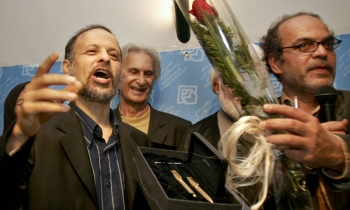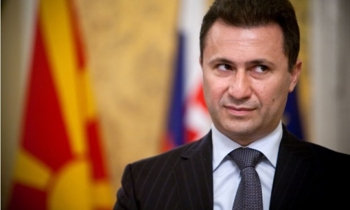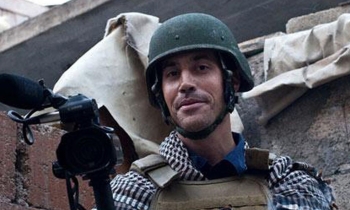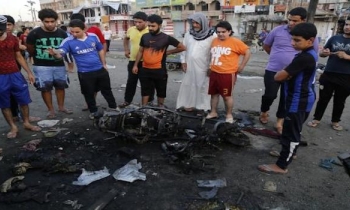Shortly after midnight on March 27, a group of armed paramilitary officers pick up Musa Saidykhan, editor-in-chief of the private biweekly newspaper, the Independent, from his home in Banjul, Gambia. Around 8 a.m., staff and visitors to the paper's offices are detained by paramilitaries as they walk into the premises.
A few hours later, the detained visitors and staff, with the exception of general manager Madi Ceesay, who is also president of the Gambia Press Union, are released. Ceesay is whisked off to the headquarters of the secret police - the National Intelligence Agency (NIA) in Banjul, where Saidykhan was held. The paramilitaries lock the paper's doors and tell the staff that no one may enter.
As of this writing, Ceesay and Saidykhan remain in custody and the newspaper offices are still locked and guarded. No charges have been filed and no reasons given for the continued detentions or the closure.
The Gambian media are no strangers to government bullying. Since President Yahya Jammeh seized power in a military coup on July 22, 1994, arrests, detentions, and sometimes torture of journalists by the NIA have become a regular feature of Gambian life.
On Dec. 16, 2004, Deyda Hydara, editor of the Point newspaper and Banjul correspondent for Reporters Without Borders and Agence France-Presse, was shot to death as he drove home from work. Gunmen in an unmarked Mercedes-Benz drove parallel to Hydara's car, pumped five bullets into his head and chest, and sped into the darkness. At the time of his murder, Hydara was involved in a legal battle against a draconian anti-media bill.
The country has also seen a string of nocturnal arson attacks on media offices, and the permanent closure of at least one radio station and newspaper. The Jammeh regime hated having articles critical of the government translated into local languages and read over the airwaves to large sections of the population who cannot read or write.
Ugly as the Gambian scenario is, it is by no means unique in Africa.
In Zimbabwe, the Daily News has been banned since September 2003. In Eritrea, 14 journalists are languishing in jail because they interviewed opposition politicians calling for democratic reforms. In Rwanda, two journalists have spent 10 years in jail because they failed to relay the Kagame government's version of events. Journalists and media outlets that report anything critical of the governments in Libya, Swaziland and Tunisia are silenced. Elsewhere, particularly tenacious editors such as Hydara are simply murdered.
For instance, in October 1986, Dele Giwa, editor of the Nigerian weekly Newswatch was killed by a letter bomb. At the time of his murder, Giwa was investigating the death in custody of alleged drug trafficker Gloria Okon, who reportedly had close ties with the military dictatorship of Gen. Ibrahim Babangida.
On Dec. 13, 1998, Norbert Zongo, publisher of Burkina Faso's weekly L'Independent, was shot to death in his car outside the capital Ouagadougou. Zongo was investigating the death under military custody of an employee of the president's brother.
On Nov. 22, 2000, Carlos Cardoso, editor of the Mozambican daily, Metical, was shot to death on the streets of the country's capital, Maputo. Cardoso was investigating a financial scandal involving 14 million euros from the privatization of the country's commercial bank.
As in Gambia, many African leaders show total disregard for the rule of law and oppress their people with mind-boggling impunity. It is high time that the world's media fraternity, and indeed, the leaders of the world's most powerful democracies, take a closer look at what's happening in Africa. An oppressive government poses a serious security threat not only to its people, but also, in this global village, to the entire world.
Baba Galleh Jallow (ohatab@hotmail.com) is a doctoral student in African studies at Howard University.









